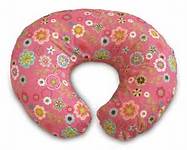My mother spoke fondly about breast feeding; she would
almost lapse into reverie. When she was a
1940’s housewife, she liked nursing time because she could take a break
from housework, sit down, and enjoy the only peace and quiet of the day.
When I went to visit a friend in Houston, she was an advocate for breast
feeding. She spoke glowingly about its health benefits and its naturalness. She told me all this when we
were sitting in the café at the Houston Museum of Fine Arts; her baby was nursing while we were talking.
Film director Juzo Itami knew another benefit of breast
feeding. He directed a delightful film
called Tampopo, a spoof of John Wayne
westerns set in a small family-run noodle shop in Japan. Itami wanted the movie audience to stick
around and read the credits. So, at the
end of the movie, he filled the screen with a breast, had a baby nurse at that
breast, and rolled the credits. When I saw
Tampopo, not a single person left
their seat until the credits had finished rolling.
So, I knew that breast feeding was a form of relief for a housewife; I knew it was healthy; I knew it could keep a movie audience riveted in their
seats.
But then I found out more about breast feeding than I wanted
to know. I was moderating the writers’
group at the Grand Glaize Library, when Maggie Singleton announced that she was
going to read from her upcoming book: Milt’s
Diary.
A surge of anticipation ran through the group. I was looking forward to finding out who this
Milt guy was, and what Milt was writing about in his diary.
Maggie began to read: “I remember being hooked up to the
breast pump and sitting in the rocking chair in the nursery.”
Wait a minute --- what is a guy named Milt doing hooked up
to a breast pump?
Maggie: “I listened to the pump do its thing and
anxiously awaited a single drop of colostrum in the attached bottle.”
What the hell is colostrum?
It sounds nauseating.
Maggie: “It was an
emotionally painful experience coupled with raging hormones. The tears flowed rather quickly.”
I had misheard Maggie. She was not reading from Milt's Diary; she was reading from Milk Diaries. I started to
squirm.
Maggie: "This wasn't at all what I envisioned my nursing and bonding experience to be. I felt like a complete failure and I didn't know how to fix it. All I kept thinking was: what was wrong with me?"
Then I scanned the writers’ group --- I was the only male there. I was convinced that everyone had stopped listening to Maggie read; instead, they were all watching me squirm.
Then I scanned the writers’ group --- I was the only male there. I was convinced that everyone had stopped listening to Maggie read; instead, they were all watching me squirm.
Finally, Maggie finished reading.
Milk Diaries, a book of breastfeeding experiences that Maggie collected from
thirty-four mothers, has been published.
And I have decided that I will remember my mother’s fondness for breastfeeding, and I will forget all the lurid details that made me squirm the
night that I got blindsided by milk at the library.
. - . - . - .
YouTube song: If You
Ain’t Gonna Breastfeed, Take Your Broke Ass Home, performed by the University of Pittsburgh School of Medicine (4 minutes):
https://www.youtube.com/watch?v=A1axxj3J9Ig
- . - .- . - . - .
- . - .- . - . - .
NOTE: Doug's best stories have been collected into a book: Puppy Out Of Breath. Price = $11. You can purchase a copy at http://www.puppyoutofbreath.com








